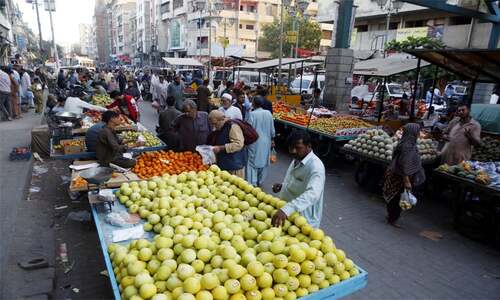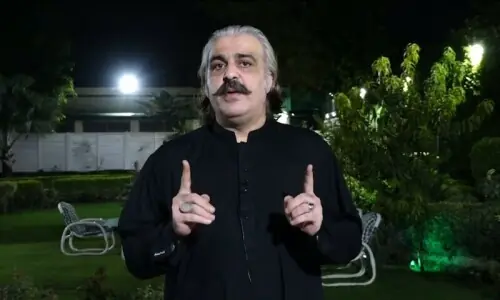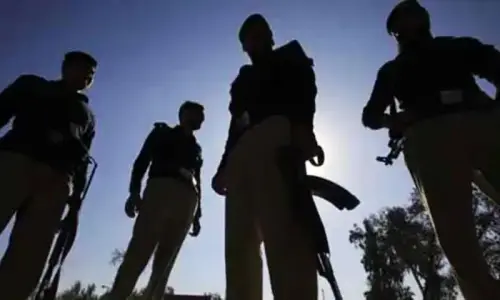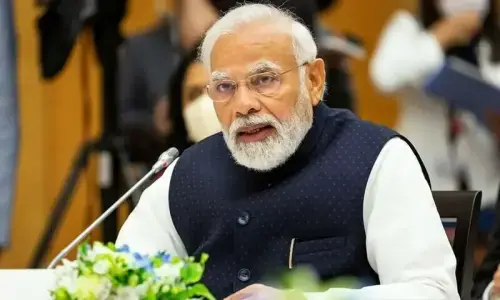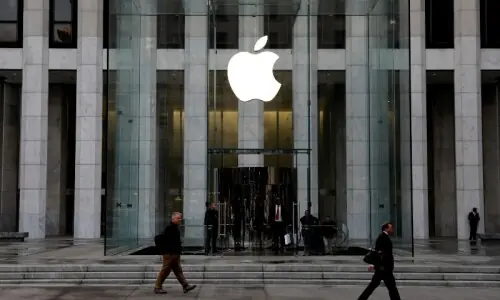 KARACHI, June 14: Make no mistake: no matter which stratum of society they come from, Pakistanis despise punctuality. The word punctual is as foreign to them as nali nihari to a Red Indian.
KARACHI, June 14: Make no mistake: no matter which stratum of society they come from, Pakistanis despise punctuality. The word punctual is as foreign to them as nali nihari to a Red Indian.
On June 13, art historian Mariano Akerman was the first person to reach the conference hall of the Alliance Francaise Karachi, where he was supposed to deliver a lecture on Belgian art: reality and fantasy. The programme was scheduled to start at 7pm, and half an hour into the scholarly talk, there were only four people, apart from the eminent art historian himself, in the hall. And when he finally rounded off his lecture, the approximately 20 men and women that had luckily assembled there (half of whom were not even Pakistanis) had plenty to catch up on. I’m told we, Pakistanis, love art; it’s just difficult for us to step out of our comfort zones to know about it.
The underlying theme of Mariano Akerman’s discussion was the progression of Belgian art from the 15th century to the first half of the 20th century, with special reference to the World Wars. The intention was to celebrate cultural diversity, and so he did with remarkable facility.
Mr Akerman quite convincingly described how Belgian artists mastered the technique of oil painting, and with the passage of time, as socio-political changes took place, moved (perhaps transcended) from the realism that catered to a certain (autocratic) taste to the symbolism that depicted not only the inner grief of painters but signified the upheavals or ordeals that society was undergoing. In his rather French-laden English, he tried to connect the dots vis-à-vis the class disparities that existed in the 15th and 16th centuries and the advent of the industrial revolution to the horrors of the World Wars.
With the help of images of somewhat iconic paintings, Mr Akerman presented his case, giving examples of masters (and their stupendous works) like Jean Michel Folon to Rogier de le Pasture to Jan van Eyck. It was fascinating to witness the art of painters of colossal stature.
Now a little about Mariano Akerman: born in Buenos Aires, Argentina in 1963, he is a celebrated educator who specialises in visual communication. A painter himself, and quite good at that, a little over a decade ago he researched one of this scribe’s favourite artists Francis Bacon’s paintings and Louis Khan’s architectural projects.
Recipient of no less than 12 international awards Mariano Akerman’s penchant for art, particularly its history, is infectious. That’s precisely why at the end of the lecture he was immediately approached by the very few attendees of the programme who nagged him with some very elementary questions about Belgian art.


